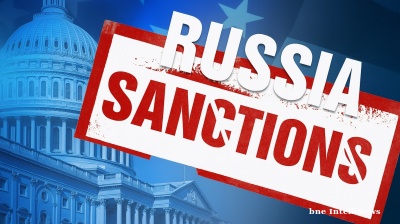Sberbank, Russia’s largest lender, is facing a meltdown from the collapse in its commercial real estate loan book, which is estimated at RUB1.8 trillion ($28bn).
The entire market, which Sberbank has a three-quarter share of, breached its loan-to-value (LTV) covenants after valuations slumped by at least 20-30% in the wake of Russia’s invasion of Ukraine in February, senior real estate sources in Moscow told bne IntelliNews.
If Sberbank demands repayment of loans or tries to tighten terms, it could set off a wave of property sales that might depress prices even further.
The bank, which is run by President Putin’s former Economy Minister Herman Gref, also has the option to seize the underlying assets, which are believed to be mainly shopping centres, offices, hotels and warehouses. However, the assets are worth about half the cost of the debt, so the write-offs would be unimaginable.
“Basically, all of their loan book is in breach of LTV covenants,” a senior Moscow real estate banker told bne Intellinews. “It must be. They are in breach even if there has only been a 20-30% drop in market value, which is the minimum that has happened, so they are under water, as the real estate is worth less than the debt.
“So, what do you with it? Do you start defaulting on the loans and end up owning everything in the market, but you can’t start selling it, as values will plummet further. The write-offs would be mind-boggling.”
Another senior source from a state-controlled entity suggested Sberbank will try to restructure the ruble-based loans “into the future and play the inflation game.”
The real estate source believes the Central Bank of Russia (CBR), under Governor Elvira Nabiullina, will be accommodating when it comes to assessing reserves against restructured loans due “to the behaviour of non-friendly state tenants pulling out.”
The cost of debt will also be significantly higher than any property yields, with potential returns not in any way reflecting the current market risks. Domestic buyers may try to put rubles into distressed assets, but market insiders don’t expect very high volumes.
“Government banks will continue to lend to support government policy but that will not be good business for them and then we end up in a completely state-run sector,” said the senior banker.
In an emailed statement to bne IntelliNews, Sberbank's press office disputed that it had any problems with the collapse in market valuations.
It said: "Sberbank has a balanced commercial real estate loan portfolio of about RUB1.8 trillion, which is formed of the most viable projects in the market. In addition, due to favourable dynamics of the ruble exchange rate, we have been actively working on transferring the foreign exchange portfolio to the ruble, which allows our clients to improve credit metrics and run their business efficiently in the current situation."
The collapse in commercial real estate prices has been exacerbated by the decision of an estimated 1,200 foreign companies to suspend or curtail their activities in Russia.
“A lot of people have left or significantly downsized their teams and so they don’t need office space any more, basically,” said the senior real estate executive. “A lot of the economy is the state but they own all the real estate and they don’t lease a lot of Class B or Class C offices, so it’s pretty clear that vacancies will go [up] massively and rents will be under pressure due to a lack of demand.”
The Class A segment, which is reliant on multinationals and Russia’s tech and fintech sectors, is expected to come under particular pressure.
“All of the Class A market depends on the modern economy and a lot of that is multinationals and companies like Tinkoff, which just signed a 12-year lease on 78,000 square metres of space in the AFI Square business centre, so who knows what will happen to that.”
Oleg Tinkov, former billionaire, was forced to sell his 35% stake in Tinkoff Bank to Russia's richest man Vladimir Potanin, after a social media rant criticising Russia’s invasion of Ukraine. Senior management fled to Dubai and have since left the lender.
Many of the real estate assets and factories may now be seized by the Kremlin and nationalised. Izvestia newspaper reported on March 5 that the Russian government had put together a list of about 60 foreign companies that could be nationalised, including Apple, Ikea, Microsoft, IBM, Shell, McDonald's, Porsche, Toyota and H&M. That list, prepared by the Public Consumer Initiative organisation, is currently being expanded, according to market sources.
“The problem is there is no investment market if there are no property rights when the state starts seizing Ikea’s property and Porsche factories,” a senior economist told bne IntelliNews. “You literally end up back in the Soviet Union and look how that went back in 1917.”
Market sources say that even Huawei, China's telecoms equipment giant, may pull out of entirely despite the close ties between Moscow and Beijing. Huawei is already furloughing some local employees and suspending new contracts with operators due to the threat of US sanctions, according to a report by Forbes Russia.
Real estate sale and purchase transactions between Russian persons and foreign persons affiliated with “unfriendly” states are now subjected to strict government approval since March 9.
Vacancy rates at some of Moscow’s shopping malls have already climbed to 70% of tenancies and many are expected to be closed or repurposed as co-working or co-living spaces.
“Many retailers who are still open have simply stopped paying rent to preserve cash,” said a market source. “Local retailers are going to have to completely rethink stock sourcing and supply chains. Previous crises in Russia have tended to spur consumer spending, particularly in consumables, but the current uncertainty caused by the war, on top of already fragile sentiment, will cause a significant slowdown.”
Real estate insiders expect that all investment activity will come to a shuddering halt with interest rates remaining quite high and inflation predicted to accelerate to 30% and beyond.
Vacancy rates at office blocks in Moscow and St Petersburg are tipped to reach 25-30% by the middle of next year.
Ozon, Russia’s e-commerce giant, has gone cap in hand to its landlord requesting a discount on its rental rate. The company, which has been likened to Amazon, even hired CBRE as a consultant to help reduce its rent or cut the office space it already rents in various business centres, according to a report in Kommersant.
Ozon rents about 100,000 sqm of office space throughout Moscow, including in premium office blocks such as the Federation and Mercury towers in the Moscow City business district. However, trying to negotiate discounts with Russian landlords has never been easy. Most of the contacts tend to be long-term.
Many of the skyscrapers in Moscow City were left vacant after the 2014 crisis. Enterprising roofers noticed how empty the office blocks were and two of them opened a hostel in the Mercury City Tower, which had a vacancy rate of 30%.
Domestic real estate developers, some of whom barely survived the 2008 credit crash and the 2014 crisis, will struggle to survive. Foreign institutions will take huge haircuts, and many will leave and never come back.
US real-estate developer Hines, which began investing in Russia after the Soviet Union’s collapse in 1991, had a portfolio of shopping malls, office blocks and rental apartments valued at about $3bn prior to the war.
Morgan Stanley real estate arm acquired the upmarket St Petersburg Galeria mall for $1.1bn in 2012 and still retains a 40% stake. The US bulge bracket bank also snapped the Metropolis mall, one of the largest in Moscow, for $1.2bn and now co-owns the asset with US pension fund Calpers.
Goldman Sachs co-owns another St Petersburg mall with a local partner, while London-listed Raven Property Group owns a string of warehouse complexes in Russia.
Meanwhile, the demand for residential property in Moscow and St Petersburg has completely collapsed after an initial frenzied spending spree saw people rushing to find a store of value for their plunging rubles.
Cash buyers for apartments have completely vanished, while those reliant on mortgages only had a month to draw down at the old rate of 7% before rates doubled and even trebled.
Central Asian gastarbeiters from Tajikistan, Uzbekistan and Kyrgzstan, who help build Russia’s urban novostroiki (new-build), have started returning home due the plummeting value of the ruble. Remittances from expat Central Asians working on building sites in Russia can account for up to 40% of GDP back home, but the money dries up when the ruble drops.
Market sources estimated that Moscow alone was building up to 40 new developments a year but there are none in the pipeline due to the lack of workers and the cost of materials and logistics doubling since the invasion.
The warehouse sector is likely to fare better than the other sectors. Localisation of manufacturing and supply chains will support some the major players as materials become increasingly expensive and western sanctions exacerbate global cost inflation.
“Players like Raven might be okay relatively speaking because there will be a lot of localisation of production and supply chains and e-commerce will continue to grow, although it will be much more localised,” said the banker.
Radius Group, which is backed by PPF, owns South Gate Industrial Park, one of the biggest Class A warehouse complexes in Russia, but many of its tenants are multinationals, including US agricultural machinery producer John Deere, General Motors, fashion chain Next, pharma giant Pfizer and French DIY company Leroy Merlin.
“Radius only have just the one location and they have a lot of internationals, so it may be harder for them,” added the banker. “John Deere won’t be selling a lot of tractors – the Chechens stole a load of John Deere low-loaders from a dealer in Ukraine and brought them home.”
Opinion

BEYOND THE BOSPORUS: Consumed by the Donald Trump Gaza Show? You’d do well to remember the Erdogan Episode
Nature of Turkey-US relations have become transparent under an American president who doesn’t deign to care what people think.

COMMENT: ANO’s election win to see looser Czech fiscal policy, firmer monetary stance
The victory of the populist, eurosceptic ANO party in Czechia’s parliamentary election on October 6 will likely usher in a looser fiscal stance that supports growth and reinforces the Czech National Bank’s recent hawkish shift.

COMMENT: Ukraine's drone attacks on Russian refineries have probably reduced throughput by 30.4%, less than headline figures suggest
Ukraine has been hitting Russian refineries and caused a fuel crisis that has spead across multiple regions. The headline figure is that oil refining has been reduced by 38% since August, but digging into it and the reduction is likely less.

MACRO ADVISORY: The unintended consequences of Western sanctions
Since 2014, Western nations have hit Russia with a total of 26,655 sanctions (to mid-September 2025), with 23,960 coming after February 2022. The largest target group, with 13,611 sanctions, is state officials, business owners, and oligarchs.



